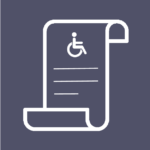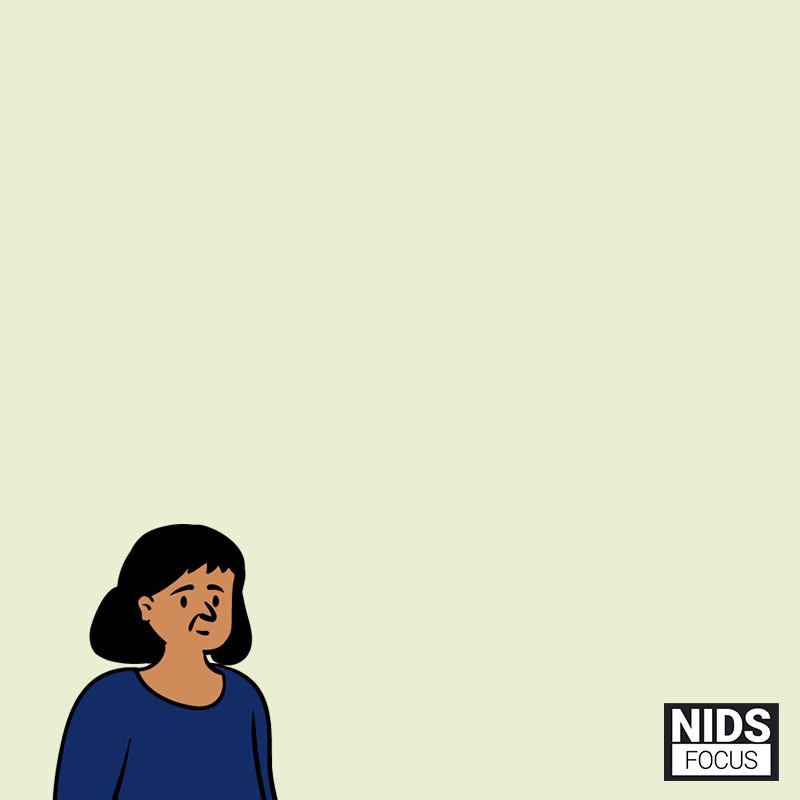
Strengthen NIRA's Mandate to Support the Vulnerable
The bill should create a cross-cutting mandate to promote the rights and dignity of Jamaica’s most vulnerable through active support at every stage of the NIDS process.
While the law encourages the Authority to be attentive to the needs of persons with disabilities and allows for persons to apply for enrolment on behalf of children, incarcerated persons, and the mentally ill, it can go even further by creating a cross-cutting mandate to support vulnerable persons at all service interactions — not just enrolment.
What This Could Look Like in Real Life
These are examples of what the NIDS Bill allows. These examples may not necessarily reflect the intention of the Bill, but are possible based on how the Bill was worded when it was tabled in 2020.
- 01. Jada is Being Enrolled Without Her Consent
- 02. Foster Facility Decides Over Teddy's ID

Jada is 60 years old and since she was 20 she was diagnosed with bipolar disorder. She has only one son, but they have had some problems in the past and they have not talked in years. Jada lives alone, but she is completely fine with it: She has dogs, loves to cook, and takes care of her garden. She is also very loved in the neighborhood and frequently passes time with the community members.

Jada’s son is interested in his mom’s land, and has requested to enroll Jada in NIDS, arguing he is the nearest relative and that she is mentally ill.

According to Section 10(4)(b), Jada’s son could enroll her without her consent.

Teddy’s parents are divorcing, and for several reasons the judge determined that Teddy will be in a facility while deciding who will have his custody.

Teddy only spent 10 days in the facility, but during that time, the facility manager enrolled Teddy into NIDS without the knowledge or consent of either of his parents.

It was possible because of Section 11(4)(a).
Details
Section 5(7) requires that the Authority “have regard to the needs of persons with disabilities” in the performance of its functions. Persons with disabilities are not the only group that the Authority should be legally required to provide special consideration, and the Authority should also consider the realities of other groups that are vulnerable or socially excluded. This includes but is not limited to children, the elderly, illiterate persons, the homeless, non-English speakers, and persons who are sick and shut-in. Besides, “having regard” is vague, passive, and weak as a mandate. Standard language would include an obligation to make “reasonable accommodation” and other forms of support that are more active and direct.
Section 10(4)(b) allows someone to apply for enrolment of a person with a mental disorder if they are the “nearest relative” of that person. But having a “mental disorder” as defined within the Mental Health Act does not automatically render someone incapable of conducting their affairs or providing consent. The Authority should be required to make reasonable enquiries, and that power should only be accessible where 1) a person consents to it, or 2) where it has been demonstrated that they lack the capacity to consent, are unlikely to regain such capacity, and the enrolment is in their best interest.
Section 11(4)(a)(ii) allows the person in charge of a childcare facility to apply for enrolment on behalf of a child at that facility. It is relevant to note that: 1) This should be expanded to include any person with lawful custody or care of a child, such as long-term foster parents, as many children who are in forms of alternative care are not only in facilities. 2) The power of persons who are not parents or guardians to enrol children in NIDS should be limited only to circumstances where parental rights have been severed, or a child is in long-term state care, since a child may come into the care of a facility due to an emergency, only for a short time, or just in-between legal proceedings. 3) Where applications of enrolment are made by a facility manager or other person who is not a parent or guardian, the bill should require notification of the parent or guardian and allow a reasonable period of response before processing the enrolment.
Recommendations
- A new section should be established (likely under Section 5) mandating that the Authority have due regard to the circumstances and needs of vulnerable groups, and make reasonable accommodation and provide special assistance at all stages of their interactions with the Authority.
- Section 11(4)(b) be amended to require that in circumstances where a person seeks to enrol a person with a “mental disorder” that the person to be enrolled consents to the enrolment unless it has been demonstrated that they lack the capacity to consent, are unlikely to retain such capacity, and the enrolment is in their best interest.
- Section 11(4)(b) be amended to require that in circumstances where a person seeks to enrol a person with a “mental disorder” that the Authority make reasonable enquiries into whether the person proposed to be enrolled has the capacity to consent, and only process the enrolment once it is satisfied that the enrolment is in the person’s best interest.
- Section 11(4)(a) should be expanded to include any person with lawful custody or care of a child, such as long-term foster parents.
- Section 11(4)(a) should be amended to limit the power of persons who are not parents or guardians to enrol children only to circumstances where parental rights have been severed, or a child is in long-term state care. Where such applications are made, the bill should require notification of the parent or guardian, and allow a reasonable period of response prior to processing the enrolment.
Status: Pending
Watch this space! We will provide an update once the Joint Select Committee has made a decision on this issue.
Last updated 2021-05-27
Comments, Questions?
Is there something we overlooked with this issue?
Have questions? Let us know!
